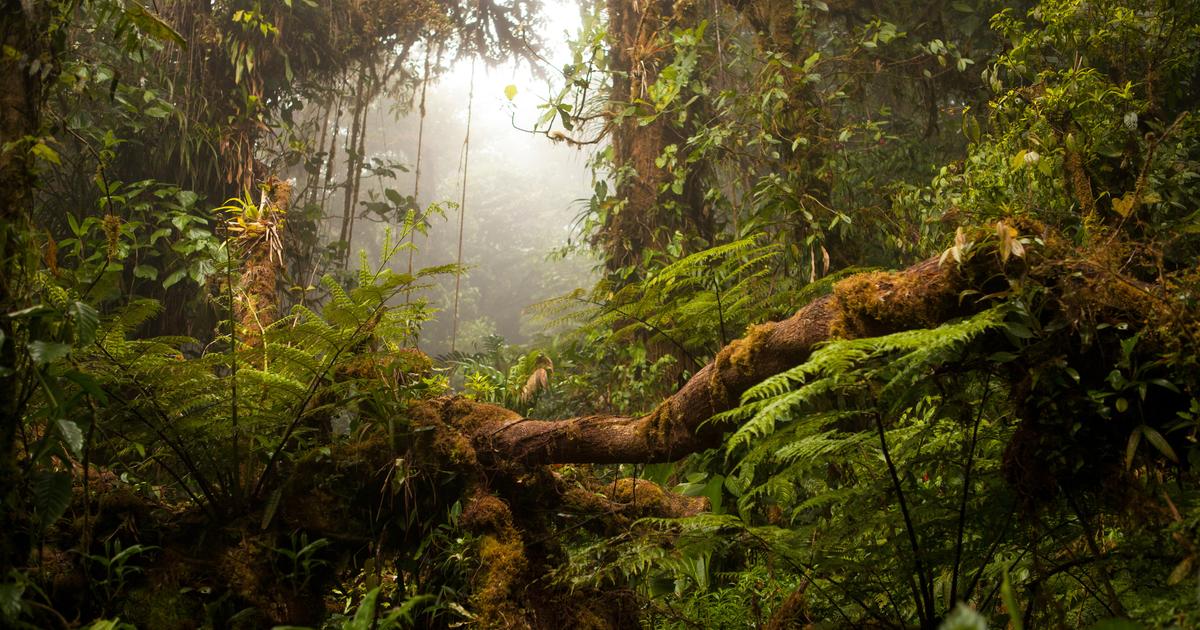The "cloud forest" of Monteverde, in central Costa Rica, will soon no longer deserve its name: climate change threatens this unique environment, its fauna and flora under a desperately blue sky. Here, one should listen to the constant drip condensation of moisture falling from trees. But it is the dead branches that break the silence by cracking under the footsteps of tourists on the dry ground paths.
To discover
- Podcast Elsewhere: Singapore's hidden surprises and treasures
The high-altitude forest still resists and delights the walker with an infinite variety of greens under a sun, alas, brilliant: the fog that reigned supreme here until recently dissipates under the effect of rising temperatures, laments the guide Andrey Castrillo, aged 24.
See alsoWhere to go to Costa Rica? From San José to Corcovado National Park, our travel guide
More sun, less rain
Tourists observe birds at the Monteverde Biological Reserve, in Puntarenas, Costa Rica, May 23, 2023. EZEQUIEL BECERRA / AFP
«
The forest should be cool," he said. "You should hear the drops falling all over the forest, but that only happens on the wettest and windiest days of the rainy season," he said. "Here there was no sun... We had about thirty days of sunshine a year. Now we have more than 130," laments the guide.
At 1400 meters above sea level, 140 km northwest of the capital San José, the Monteverde Nature Reserve (private) covers 14,200 hectares and is home to a hundred species of mammals, 440 birds and 1200 amphibians. This exceptional type of highland forest represents only 1% of the world's tropical and subtropical areas. "Near-ground cloud cover forms when moisture saturation is above 90% with temperatures between 14 and 18 degrees Celsius," 38-year-old researcher Ana Maria Duran at the University of Costa Rica told AFP.
See alsoTravel diary in Costa Rica, curious about nature
"Walking among the clouds"
A Hercules beetle, one of the largest species of its genus. EZEQUIEL BECERRA / AFP
The researcher explains that she has been coming here regularly for more than twenty years. Normally, the "almost permanent" fog gives the impression "of walking practically in the middle of the clouds" and one should not see more than a meter away, she says, while the gaze sinks into the forest where a temperature of more than 25 ° C reigns under a blue sky where only a few clouds crown the summits.
«
Coming to Monteverde to find such dry conditions and not being in the clouds like it was 20 years ago when I started coming, it's obviously very sad," says Duran. Rising temperatures, lower humidity, more sunshine: mosses are dry on tree trunks, rivers are nothing more than streams, and amphibians are the first victims of climate change.
See alsoDrought: what should tourists expect this summer in the Verdon?
'There's going to be a lot of extinctions' of species
«
The decline of amphibians in cloud forests can serve as a wake-up call," warns biologist Andrea Vincent, who teaches at the University of Costa Rica. Already, the species Incilius periglenes, known as the golden frog, or Monteverde, is considered extinct since 2019 on the list of the International Union for Conservation of Nature (IUCN).
«
A cloud forest without clouds, it will disappear, it is obligatory, "says the academic of 42 years, warning that "there will be many extinctions" of species. But this "daunting scenario" can still be avoided, she hopes: "Ecosystems are resilient. If we make efforts to stop climate change it is possible that cloud forests will recover... Not during our own lives but perhaps for the next generations."

